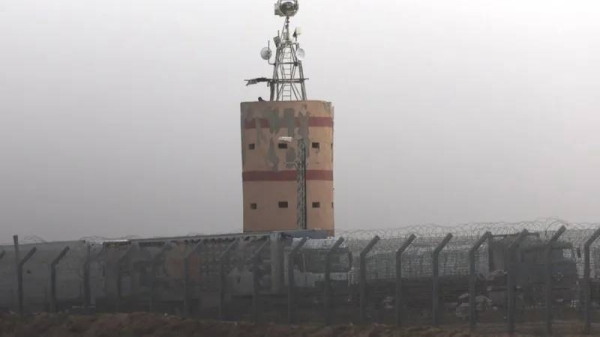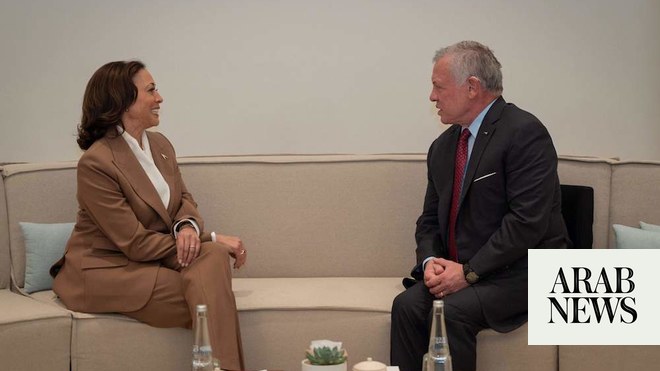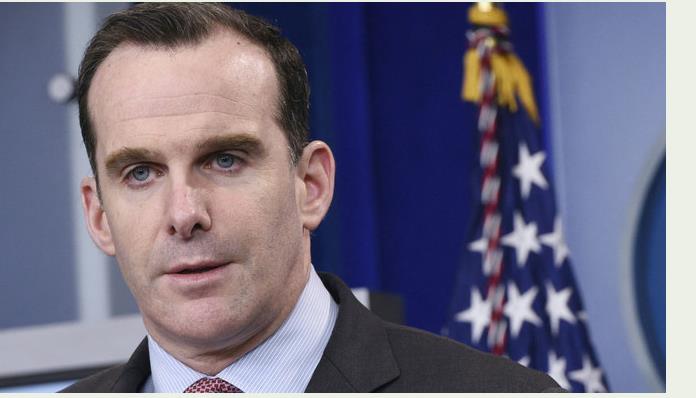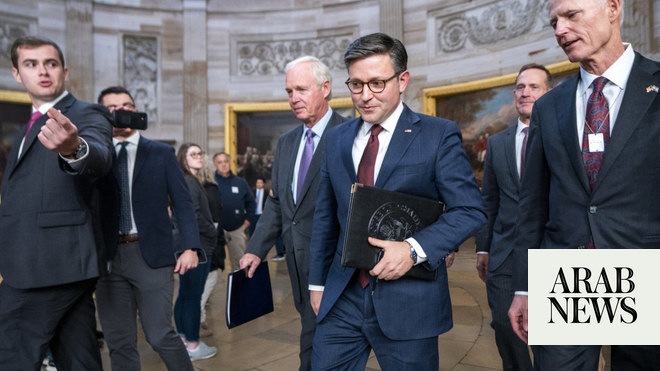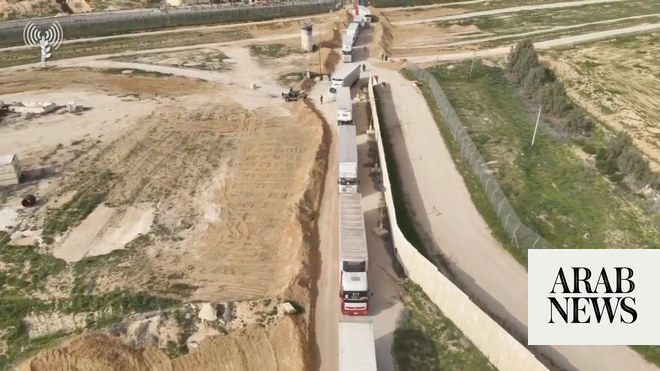
Prime minister’s office said that as a "temporary measure," aid may be delivered directly to Gaza through its Kerem Shalom border crossing
Aid distribution had largely stopped in most of Gaza, except on a limited basis in the Rafah area, according to the UN
GAZA STRIP: Israel reopened an aid crossing into Gaza on Friday as staunch ally the United States urged more restraint in its all-out offensive against Hamas.
Under pressure to do more to spare civilians, Israel approved a “temporary measure” allowing aid to be delivered directly to Gaza through its Kerem Shalom border crossing, the prime minister’s office said.
Israel had faced weeks of pressure from aid agencies and Western allies to reopen Kerem Shalom as Egypt’s Rafah crossing struggled to cope with the scale of need inside Gaza, where 1.9 million of the 2.4 million population have been displaced, according to UN figures.
The war began after Hamas launched an unprecedented attack on Israel on October 7 that Israeli officials say killed around 1,200 people, mostly civilians.
Vowing to destroy Hamas and bring home an estimated 250 hostages abducted by militants to Gaza, Israel launched a massive offensive that has left much of the besieged territory in ruins.
The Hamas government says the war has killed at least 18,800 people, mostly women and children.
Fierce fighting continued on Friday, with Hamas claiming they had blown up a house containing Israeli soldiers in the southern city of Khan Yunis.
US National Security Adviser Jake Sullivan, who was wrapping up a trip to Israel and the West Bank, called the decision a “significant step.”
“President (Joe) Biden raised this issue in recent phone calls with Prime Minister (Benjamin) Netanyahu, and it was an important topic of discussion during my visit to Israel over the past two days,” he said.
The United States hopes “this new opening will ease congestion and help facilitate the delivery of life-saving assistance,” Sullivan added.
A World Health Organization representative said the announcement was “very good news.”
Aid distribution had largely stopped in most of Gaza, except on a limited basis in the Rafah area, according to the UN.
In Khan Yunis, satellite news channel Al Jazeera reported that one of its journalists had been killed and another wounded by “shrapnel from an Israeli missile attack.”
More than 60 journalists and media staff have died since the Israel-Hamas war began, according to the Committee to Protect Journalists.
The US, which provides billions of dollars in military aid to Israel, has strongly backed its response to Hamas’s attacks, but has voiced increasing concern over civilian casualties and the long-term plan for Gaza.
“We do not believe that it makes sense for Israel, or is right for Israel, to... reoccupy Gaza over the long term,” Sullivan said after meeting Israeli leaders.
In Washington, Biden reiterated calls for greater care for Gazan civilians.
“I want them to be focused on how to save civilian lives — not stop going after Hamas, but be more careful,” said Biden.
Sullivan also traveled to the West Bank to meet Palestinian president Mahmud Abbas, who said Gaza must remain an “integral part” of the Palestinian state.
Abbas’s Palestinian Authority has partial administrative control in the Israeli-occupied West Bank, but is deeply unpopular with Palestinians and has been further weakened by the war.
However, Washington still hopes that in a revived form it can resume control of Gaza as part of a renewed push for a two-state solution to the Israeli-Palestinian conflict.
Multiple Western governments issued a joint statement demanding that Israel “take concrete steps to halt unprecedented violence by Israeli settlers” in the West Bank.
Attacks by extremist settlers since early October have killed eight Palestinians and wounded 83, they said.
Israel’s police force said it had suspended several officer after they severely assaulted a journalist for Turkish news agency Anadolu as he was trying to take photos of Palestinians praying in annexed east Jerusalem.
Further south in Rafah near the Egyptian border, crowds of Palestinians used flashlights to search the rubble of buildings for survivors following Israeli strikes.
“This is a residential neighborhood, women and children live here, as you can see,” said resident Abu Omar. “Three missiles on a residential neighborhood that has nothing to do with any militant activities.”




